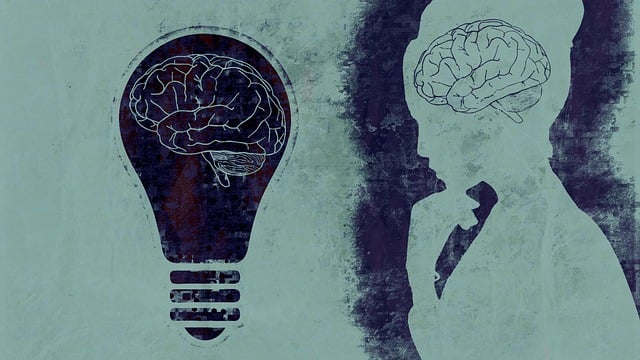Substance abuse often arises as a coping mechanism for underlying mental health issues, with risk factors like genetic predisposition, environmental influences, and trauma pushing individuals towards self-medication. Englewood Relationship Issues Therapy (ERIT) uncovers these connections and equips individuals with tools to manage both risk factors and addiction through counseling, support groups, mindfulness meditation, and journaling exercises. Early intervention using evidence-based strategies, including ERIT, Mental Wellness Coaching Programs, and Mental Illness Stigma Reduction Efforts, significantly reduces the risk of substance abuse by addressing emotional and relational issues. Building a robust support system, gaining conflict resolution skills, and promoting emotional healing are key to successful recovery and preventing relapse.
Substance abuse poses significant risks, but proactive strategies can mitigate these dangers. This article explores comprehensive approaches to risk reduction, focusing on understanding the intricate link between risk factors and substance misuse. We delve into identifying triggers, from behavioral patterns to underlying mental health issues, and highlight evidence-based prevention tactics.
Additionally, we emphasize the role of support systems and ongoing care through Englewood Relationship Issues Therapy, offering a path to sustainable recovery. By addressing these aspects holistically, individuals can break free from the cycle of addiction and embrace healthier lives.
- Understanding the Connection Between Risk and Substance Abuse
- Identifying Risky Behaviors and Triggers
- Evidence-Based Strategies for Prevention and Early Intervention
- Support Systems and Ongoing Care for Sustainable Recovery
Understanding the Connection Between Risk and Substance Abuse

Substance abuse often arises as a coping mechanism for underlying issues, highlighting the intricate Englewood relationship between risk and mental health. Risk factors can include genetic predisposition, environmental influences, and trauma—all of which may push individuals towards self-medication. For instance, someone struggling with stress or dealing with unresolved relationship issues might turn to drugs or alcohol as a form of temporary relief, unaware of the detrimental long-term effects.
Englewood Relationship Issues Therapy focuses on identifying these hidden connections and providing tools for managing both risk factors and addiction. By addressing mental health concerns through counseling and support groups, individuals can learn healthy coping strategies. Additionally, incorporating stress reduction methods like mindfulness meditation or journaling exercises (a form of crisis intervention guidance) can empower people to navigate challenges without resorting to substance abuse.
Identifying Risky Behaviors and Triggers

Identifying Risky Behaviors and Triggers is a pivotal step in developing an effective strategy for substance abuse prevention. Many individuals engage in behaviors that increase their risk of addiction, often stemming from underlying issues such as stress, trauma, or relationship problems. For instance, those experiencing depression may turn to substances as a coping mechanism, highlighting the importance of addressing mental health concerns alongside substance abuse. Engaging in open dialogue with a therapist specializing in Englewood Relationship Issues Therapy can help individuals recognize these risky behaviors and triggers.
Cultural sensitivity in mental healthcare practice plays a significant role here, ensuring that therapy is tailored to the individual’s unique cultural background and experiences. This personalized approach fosters trust and encourages clients to explore their emotions and behaviors openly. Additionally, integrating Mental Wellness Coaching Programs Development can equip individuals with tools to manage cravings and develop healthier coping strategies, ultimately reducing the risk of substance abuse.
Evidence-Based Strategies for Prevention and Early Intervention

Early intervention is a cornerstone of effective substance abuse prevention, and evidence-based strategies play a pivotal role in reaching at-risk individuals before the onset of addiction. One powerful approach is Englewood Relationship Issues Therapy, which focuses on addressing underlying emotional and relational issues that contribute to substance misuse. By fostering open communication and enhancing coping mechanisms within relationships, this therapy can significantly reduce the likelihood of turning to substances as a means of escape or self-medication.
Incorporating Mental Illness Stigma Reduction Efforts into prevention programs is equally vital. Removing the stigma surrounding mental health challenges encourages individuals to seek help early on, potentially preventing them from engaging in risky behaviors as a coping mechanism. Additionally, Risk Management Planning for Mental Health Professionals can equip practitioners with tools to identify patients at higher risk of substance abuse and guide them towards appropriate support systems. Encouraging self-reflection through Mental Wellness Journaling Exercises can also be an effective way to promote awareness, encourage healthy coping strategies, and foster resilience in individuals prone to mental health struggles.
Support Systems and Ongoing Care for Sustainable Recovery

Building a strong support system is an integral part of any substance abuse recovery journey. Englewood Relationship Issues Therapy emphasizes the power of connecting with others for long-term success. This could involve joining support groups where individuals share similar experiences, seeking family therapy to repair relationships affected by addiction, or finding mentors who have gone through similar struggles. Having a reliable network provides accountability, encouragement, and emotional support throughout the recovery process.
Ongoing care is essential to sustain recovery and prevent relapse. Therapy sessions focused on conflict resolution techniques and emotional healing processes can equip individuals with valuable skills to manage triggers and challenges. Encouraging positive thinking and fostering resilience are key components of this care, enabling individuals to navigate life’s ups and downs without resorting to substance abuse as a coping mechanism.
Substance abuse is a complex issue, but by understanding its connection with risk factors, we can develop effective strategies for prevention and recovery. Identifying risky behaviors and triggers early on is key, as evidenced by successful prevention programs like those offered at Englewood Relationship Issues Therapy. Implementing evidence-based interventions and fostering strong support systems are essential steps towards sustainable recovery. Through ongoing care, individuals can overcome challenges, transform their lives, and build a healthier future free from substance abuse.














